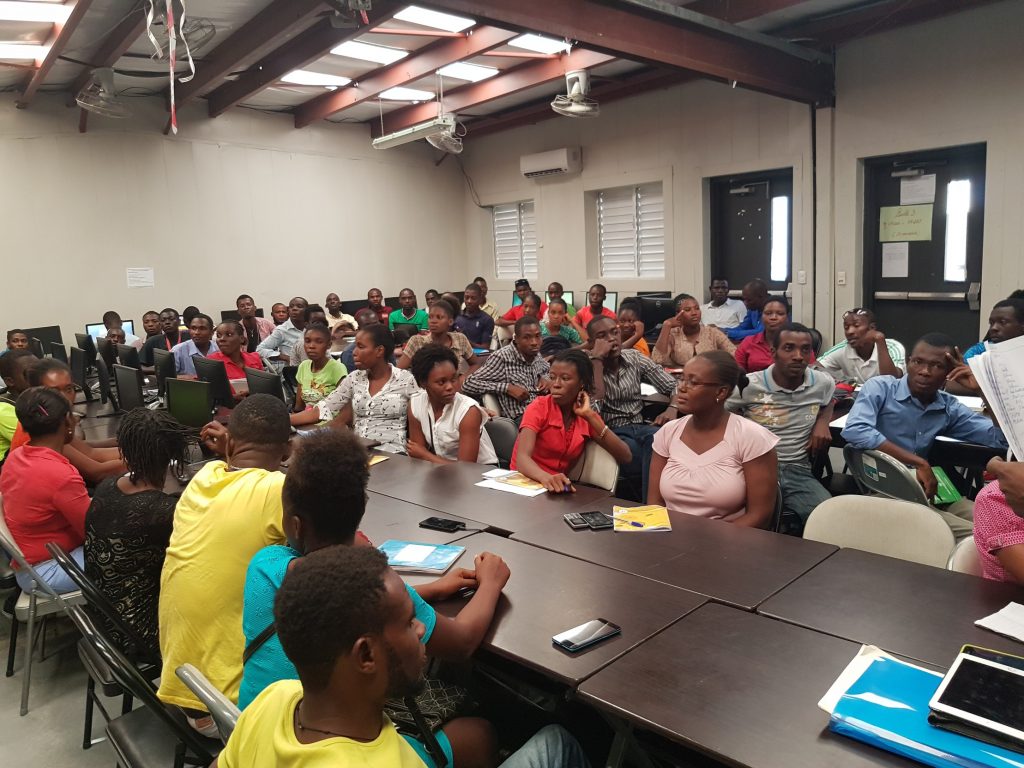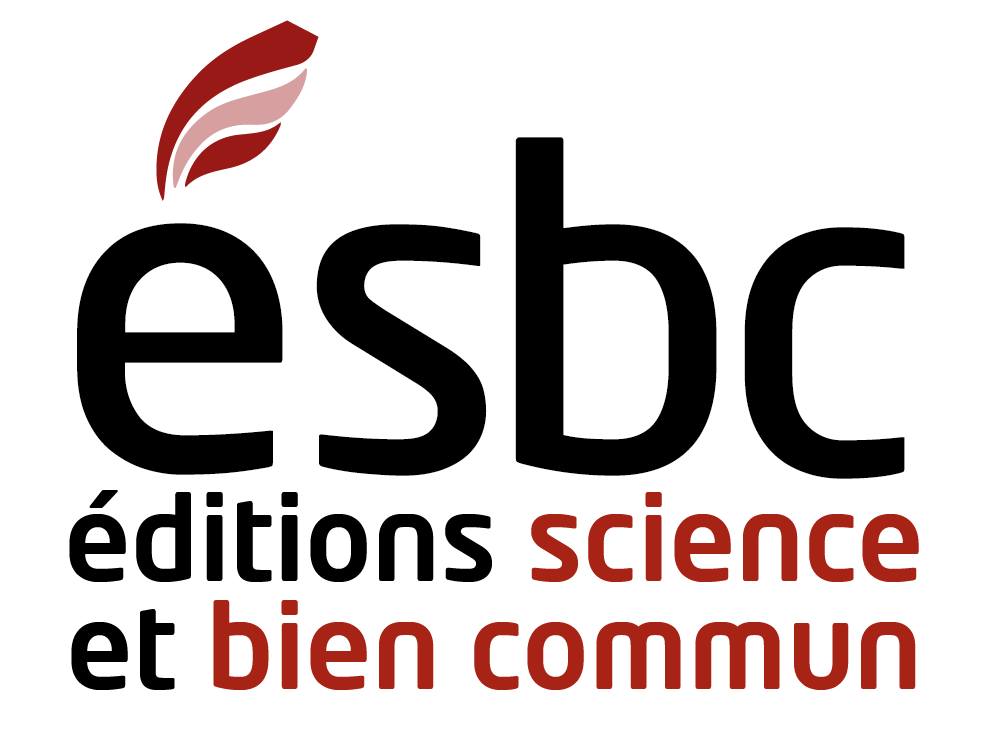10 Two fruitful spin-offs of the project
Students from the Université publique de la Grande-anse initiated to inclusive education
Nelson Sylvestre
Initially intended for eight students from the State University of Haiti and INUFOCAD, the GIECLAT project eventually served the cause of the Public University of Grand’Anse. A group of students in Education Sciences from this university joined the research team as trainees and investigators.
Since the integration of student trainees from the Université publique de la Grand’Anse (UPGA) in this research, several activities have been carried out and convincing results have been obtained. Indeed, as is always the case in any research process, many factors deemed relevant have been introduced to better channel the anticipated positive impacts. Among these, it is important to mention the following:
- Hosting of approximately 75 student interns for UPGA;
- allocating a reasonable number of students to both urban and rural locations (13 “communes” and two localities: Léon and Fond Cochon);
- a large number of sampled schools in urban and non-urban areas;
- training and awareness raising of many students;
- introduction of the field of inclusive education, previously ignored in the Faculty’s training curriculum.
These introduced factors have certainly changed the course of activities, making it difficult for the GIECLAT researchers, but these positive forays were well worth making. For a truly significant impact is being achieved, serving as a positive outreach and raising community awareness of educational exclusion by presenting the advantages of inclusive education to educational actors, official employees and local authorities.
In this report, two major and complementary impacts are presented that should lead the coordinating team to replicate the approach adopted in this phase of the project: 1) consideration of schools that are often excluded in the “education policy” and 2) involvement of the UPGA university structure in the domain of “students with disabilities”.
These two impacts highlight the importance of carrying out research on themes related to the concrete problems that the population in Haiti faces on a daily basis. The problems of the school environment are dealt with within a framework of exchange and collaboration that involves the ministerial authorities of national education and the local authorities.
Grand’Anse schools and research impacts
Sixty schools from the 15 sampled areas (13 “communes” and two localities) were observed and surveyed in this phase of the project. This systematic exploration made it possible to identify all the learning difficulties among the students as well as those related to the ability of most teachers or classroom teachers to transmit knowledge properly. The governance of these schools (the principals and the rest of the school administrations in place) does not at all facilitate the possibility of doing something in terms of the effectiveness and efficiency of the educational process. Thus, in any case, ongoing research is becoming the leitmotif for dealing with these cases of school children with disabilities and launching the debate on the problem of school exclusion in Haiti.
The impacts are as follows:
- The staff of the schools involved have clearly shown an interest in the theme by responding each time to the requests of researchers, associate researchers and support institutions. They agreed to collaborate with student trainees in their observation and exchange visits.
- The training given to teachers and principals in the schools surveyed on the need to promote the field of inclusive education has been welcomed as a useful support. These teachers and principals were unaware that many of their students had disabilities until they received the invitation to participate in the research.
- The knowledge obtained provoked discussions and debates. Teachers and school principals became convinced of the importance of applying the strategies presented. They were convinced that the transmission of knowledge to students will have to be done differently, so that cases identified as “students with disabilities” can be dealt with immediately. This has, at times, helped to reduce recurring conflicts between principals, teachers, and parents whenever the time came to assess teachers’ performance and student’s achievement in the clasroom.
- The issue of inclusive education is now present in these schools’ settings. Caring for those who would be in a situation of disability after the observation and analysis of the indices usually retained became a priority in these educational institutions although concrete actions to address the needs of students and teachers are still slow in coming due to economic and socio-political circumstances.
Along these lines, the illustrative documents on student disability have easily prompted teachers and principals to reshape their thoughts and ways of dealing with students with psychotraumatic disorders. Euphemisms such as “elèv la sòt“, “elèv la nil“, “kote sa w pa ka konprann nan enbesil, idyo“, etc., begin to be considered vulgar, inappropriate, and unacceptable in the school learning environment. Stereotypes and prejudices on the part of educational officials are thus challenged so that better educational results are on the horizon. The Project has produced these impacts as a way towards a less unequal education system in the near future.
These positive impacts are not seen only in the schools that have benefited from this support. The Université publique de la Grand’Anse and its academics (professors, supervisors, students and administrators), who greatly supported the process, benefited greatly from it for the reasons outlined below.
UPGA, the project and its impacts
The participation of UPGA students in the activities implemented in this phase of the project proved to be a major asset for them. Indeed, the obligation to carry out their internship in educational institutions became possible and the University itself was able to make the most of the deadline set for this purpose. Given that the creation of this university was something of an experiment, the graduation of these students with a diploma was neither assured nor guaranteed. The GIECLAT project changed that. Here are some of the positive consequences obtained:
- The participation of the 82 students as interns inaugurated the discovery of a new field of knowledge in the educational sciences. Inclusive education, highlighting the mechanisms for teaching and caring for students with disabilities, was well taken into consideration.
- The training and coaching sessions on observation, collection and analysis guides held for them were very innovative. They constitute a complementary year of specialization for these students. The amount of knowledge accumulated by these students suggests that it was time for the project to reach the University level.

- The multiple field visits of the student trainees increased their motivation and interest for inclusive education. These trainees were so motivated that they decided to use the theme to research and write their own bachelor thesis. Out of 120 theses produced by an entire class in education sciences, 70% of them deal with the issues related to students with disabilities. Following the oral defense sessions held in August 2019, the trainees of the project, now graduates in Educational Sciences, received generally high marks.
- The researchers associated with the project were student mentors. Like UPGA teachers, they were invited as members of the jury to defend the students’ theses. This is a major impact of the project, since these graduates will be called upon to transmit to the students of the Grand’Anse schools the knowledge and experiences they have developed.
- One of the objectives for which the Université publique de la Grand’Anse was established in the region was to provide it with a training and research structure. The result is now beginning to come to fruition, as the data collected in this phase of the research shows that graduate students on disability are an important nucleus for the schools. On this basis, the contribution of the project to UPGA (trainer of new managers for schools) is an invaluable public service that should be appreciated and replicated.
All in all, if the effect of an action has yet to produce an effect, that effect (when the benefit is social) is quite a positive impact. May the current phase of this research bring more to the educational community, in terms of interest and insight!

